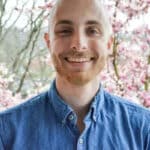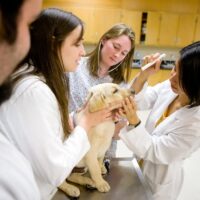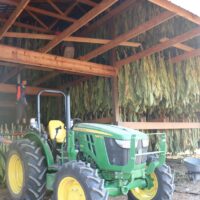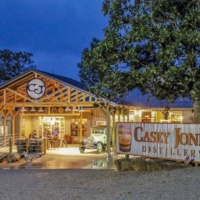Murray State University’s Center for Agricultural Hemp hosted hundreds of people Thursday for a hemp field day to highlight developing research and learn more about the crop and the significant risk still involved with the industry.

Center staff took attendees on tours around the university’s West Farm Complex, showcasing studies including experimentation with hemp fertilization and feeding hemp to livestock including hogs and chickens.
“We’ve established it won’t kill [livestock]. They like it. And now, we’ve moved a little bit beyond that, we’re looking to see what by-product of the hemp process could add toward the animal feed world,” said Brian Parr, Murray State Hutson School of Agriculture Assistant Dean. “And hemp is very high in Omega-3 fatty acids. And so we’re feeding these small levels of supplements on top of hens’ normal feed to see if we can get kind of a medicated effect into those eggs.”
Parr said there’s still an “enormous” amount of risk growing hemp this year in part because of a lack of crop insurance and the learning curve for many growers. Parr also says the financial markets, including the costs to produce hemp and selling prices, can fluctuate.
“You’re shooting at a moving target right now. And so, input costs and what you can expect to even sell the product for in the end — it changes daily,” Parr said. “Even the value of the finished product is changing dramatically on a wholesale level.”
For Douglas and Suzy Menck, who drove from Scottsville, Kentucky, to attend the field day, the risk of growing hemp is a part of the trial-and-error experience.
“In anything new, you have to be willing to take a risk and know that if you can’t afford to lose what you’re putting in, don’t do it. Farming is a gamble,” Suzy Menck said. “There needs to be a central clearing house where you can go and get consistent information instead of ‘well, my friend did this’ or ‘my friend said that’.”
Suzy Menck said they came to the field day to hear from other growers about different methods in cultivating hemp, and she hopes the Center of Agricultural Hemp can be a reliable source for hemp growers in the future.
Douglas Menck said they had accidentally killed a few plants from the single acre of hemp they grow because of overwatering, and also had planted their crop too late in the growing season. But he still plans to keep going.
“This is a year of learning. I don’t care how late I put it in the ground, and I’m going to learn the process. And they may not be big plants, but they’re actually doing darn good,” Douglas Menck said.
(This report first ran on WKMS.org, the public radio state at Murray State University.)
Liam Niemeyer is a reporter for the Ohio Valley Resource covering agriculture and infrastructure in Ohio, Kentucky and West Virginia and also serves Assistant News Director at WKMS. He has reported for public radio stations across the country from Appalachia to Alaska, most recently as a reporter for WOUB Public Media in Athens, Ohio. He is a recent alumnus of Ohio University and enjoys playing tenor saxophone in various jazz groups.






